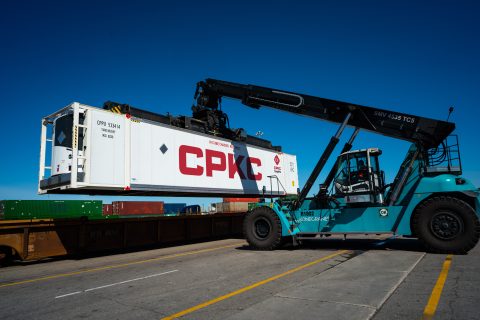Italian waste in the Netherlands via rail: Switzerland is opposed too

The recently launched initiative of shipping waste from Rome to Amsterdam via rail keeps encountering criticism. This time, Swiss MP Bruno Storni pointed out that the new service does not benefit Switzerland but, on the contrary, removes capacity for passenger services.
Do you want to read the full article?
Thank you for visiting RailFreight.com. Become a member of RailFreight Premium and get full access to all our premium content.
Are you already a member?
Having problems logging in? Call +31(0)10 280 1000 or send an email to customerdesk@promedia.nl.




